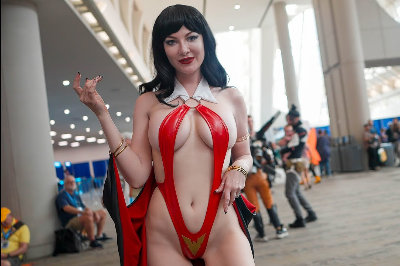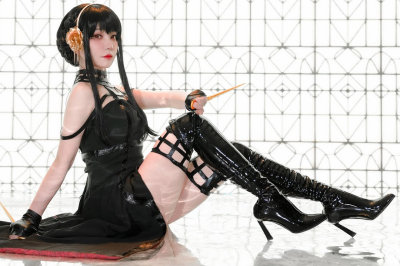TRAUMA - Q&A with MARC EVANS and COLIN FIRTH
Movie Interview by Jonathan Harvey
TRAUMA London press conference with director Marc Evans and lead actor Colin Firth on 24 August 2004
Marc, how did the script reach you?
MARC EVANS: Via a label called 'Ministry of Fear', which is a new British initiative set up to make genre-esque films. They approached me because I'd just made MY LITTLE EYE, which was a genre film. They had a script by Richard Smith, who was a first-time writer, and that was that, really! The great thing about the script was the attractive and alluring world; the tone was dark and interesting, and the characters were ambiguous.
You have quite an interesting take on how it's almost 180 degrees different from MY LITTLE EYE.
MARC EVANS: Yeah, as a director you think 'what can I do that I haven't done before?' With MY LITTLE EYE, the whole basis of the experiment was to try to shoot the film as if from the point of view of all the webcams, to get a very objective view of the action. But TRAUMA in a sense was the opposite, looking at the world inside-out from the main character Ben's point of view, which required a different approach in terms of camera, and was exciting for me.
Colin, was this a throw-back to the sort of films you were doing earlier in your career? Was it a nice surprise to find this script offered to you?
COLIN FIRTH: It was fantastic, really. And the fact that it was with Marc. We did something in not entirely different territory a few years ago. I felt very much at home with this sort of film - it was like coming in after a very long time out in territory which I wasn't particularly comfortable in. It's probably a terrible misfit with what people perceive, and what they're comfortable with me doing, but those things don't always go together. I felt this was very much where I belong.
What was the attraction of working with Marc?
COLIN FIRTH: It's not that often that someone whose work you respond to is also a mate. We've talked a lot about the sort of films we'd like to see and make, and we were even in the process of developing an idea together when this came up. It's a massive advantage, in a process as collaborative as this has to be, to be working with like-minded people or at least with people with whom there's a mutual stimulation. I think many of the great directors have proved over decades that creating a family of people whose work they know and trust is productive. You can fire off each other's ideas more easily. So we had all that. I knew it'd be a lot of fun.
MARC EVANS: Yeah, it was a lot of fun!
COLIN FIRTH: And I thought he could do things to make me look more interesting than I really am! So a lot to be gained, really.
Was the role all you expected?
COLIN FIRTH: That's a hard question. There's so much that happened along the way that I've probably forgotten what I expected. I didn't have a very clear of who Ben was, and had to find it out along the way - I think it was a process of putting together pieces of myself and impressions I have of people who've been in situations like this. But it wasn't really like what I expected.
MARC EVANS: It was quite an organic way of working. We were working with John Mathieson, who's a fantastic cinematographer, and we were all free enough to generate ideas and see them through. It was very collaborative, and that's why it was fun. If you've got an actor you get on with, you can get a fluidity going that you can't get if you're doing a scene with five-thousand orcs in it. That's the joy of this kind of filmmaking, and the shoot was a very happy experience. Sometimes the films with heavy subjects can be more fun on set than the comedies. Comedy is quite a serious business, isn't it?
COLIN FIRTH: Comedy's really depressing, actually! I think it causes a huge amount of anxiety. It's gone into popular mythology how miserable comedians so often are. I can't explain it all, except it's extremely difficult and getting it wrong is horrendous. You very rarely miss by a bit with comedy. If you miss you've fallen off the high-wire and you're left looking like an idiot. Somehow you've got a lot more play with drama. All your angst can go into your work, and you go home with a smile on your face!
MARC EVANS: And the odd ant in your hair...
COLIN FIRTH: For weeks afterwards.
Speaking of insects, did the film address any of your phobias?
MARC EVANS: What struck more with me was the loneliness and grief, rather than the ants and the spiders. I don't really want to put a spider in my mouth, but what I identified with most was the idea of how daunting coming to a big city like London is when you're young and you come here for the first time, and how threatening it can feel.
COLIN FIRTH: I'll take the ants and the spiders over the stalkers! But I have the usual healthy preference not to be covered in ants. What would frighten me most about the themes in this film, though, is the loneliness. That's what I found horrific.
Haven't you developed quite a good professional relationship with the spider, subsequently?
COLIN FIRTH: Yes! She and I got on very well, really. It's a funny thing actually, as I met her again a year later on another film, called Nanny McPhee, where the spider makes an appearance for very different reasons. But she's not in it actually - her sister is. But she was there in the same box. And we had to start all over again really. She didn't remember who I was, and although I'm not arachnophobic, I'm not in a great hurry to pick them up. So while I'd got over it that one day, we weren't able to pick up where we left off.
MARC EVANS: Yeah, there's no special effects in this film. If you want ants, you've got to have ants. We had an ant specialist from Scotland who looked after our ants, and hoovered them up after every scene. He didn't kill them, obviously!
COLIN FIRTH: I don't know much about ants, but I know that however uncomfortable it was for me, it was worse for them.
Did you relate to the themes of obsession in the film?
COLIN FIRTH: Playing someone who's the obsessor made me think about it differently. I think one of the things I found interesting was to understand that with a character as lonely as Ben - and it's not unusual to be this lonely, particularly in a big city - he doesn't have any intimacy in his life, which again isn't that unusual. We've got a completely comprehensive media now, and if you're very lonely you're going to be vulnerable to that and the possibility of it being the only intimacy you'd ever get. There's a bit of an irony that on the one side there's the artist trying to purvey this to the camera, and some needy, unstable people on the receiving end. You want to reach people, and in some ways actors can be intimate in front of a camera in a way they never are at home, but it's a bizarre relationship - a complete stranger can come up to you and feel as if you've promised them something, so there's a danger of confusion. You come into people's living rooms on the screen with very personal stuff, so in a way you can't be surprised if people in the living rooms take it personally.
How intense was the experience?
COLIN FIRTH: It was fun, but there wasn't much downtime. We were filming very long days, six days a week and we were basically all living on the set. To walk away afterwards when there's been nothing in your life except dark corridors, insects and ghosts, it takes a bit of time to tune back. But I didn't go into a Ben world of psychosis! And it was fun to play around in the dark - I missed it. In some ways I was attracted to it. I don't know what that's about.
MARC EVANS: Ben's not unromantic, is he? He's kind of like an artist with no art. A sensitive person who's left alone.
COLIN FIRTH: Yeah, he's a well-meaning guy. He wants to be sane, happy, and normal. But none of these things happen to him because he is a fantasist, and he's failed to grow up, basically. It feels like the whole art school pilgrimage that so many people from the provinces (I think I'm loosely speaking one of them) experienced. My entire generation of friends went to art or drama school, wanting to be one of those interesting people who live an alternative life and break the rules, and not one of those boring run of the mill people. And either you're creative and productive and become successful, or you grow up and get a proper job, or you just don't and carry on in that student mentality. I think one of Ben's problems, and why he's left alone, is that all his friends have grown up, got married, or become famous artists or whatever, while he just didn't. He's the lonely soul living in a big city in a pigsty, which is almost becoming to a 19 year-old student, but it's just really worrying when he's 40-something. So I think all the elements are in the right place, but he's lost his grip because there's no one there anymore.
Why was Mena Suvari cast as Charlotte?
MARC EVANS: Just her quality, her otherness. We wanted this character to be a potential angel in Ben's life and she's a well-meaning neighbour, beautiful and different. Mena has all those things in spades, but she also has a dark streak and is interested in this kind of material. She's great to work with. And as for the American thing, the part wasn't written as an American, but when she said she was interested I saw no reason to make her English and in some ways it was an advantage, as she has to talk about crystals and alternative medicine, and in a funny sort of way that seems to come more easily from an American character than perhaps an English one. It seemed to sit very easily with her.
Colin just a quick question about BRIDGET JONES 2, was it more fun than the original?
COLIN Firth: Well I haven't seen it! It was probably a bit more fun than the first one. This time we knew each other, and it was great to see everyone again and see them doing their thing again. And in fact it was seeing them do it that convinced me that it was ok to be doing this, as I was as sceptical as anyone else. It's a very funny thing about doing something that's perceived as a sequel - while it wasn't happening, all of us were badgered endlessly, 'What about Bridget Jones 2?' And as soon as we announced we were doing it, it was 'Are you sure that's wise? I'm not sure anyone wants to see a sequel, you know?' Then there's a slight concern that everyone will hate you if you just give them the same film again, but they'll also hate you if you don't. So you've got to tread a line, and I really wasn't sure until I saw them do it, and now I think it'll be really great.
Finally, Marc, can you tell us a bit about your influences behind making this film?
MARC EVANS: The work of John Mathieson was one thing, especially on a film called LOVE AND THE DEVIL, a film about Francis Bacon, in which I loved the camera work, so a big influence was what John brought to the table. He's agile with a camera and knows that you can create simple things well with a lens. We also tried to find locations for an alternative, gothic London, not 'Swinging' London or red buses going past Buckingham Palace, but rather the London people sometimes first encounter, when they're living in a dodgy flat and trying to make it in the world. And we also had an idea of trying to make Ben's world quite institutionalised, so we don't show much of the outside world. And other influences were films like that, so things like DON'T LOOK NOW, the Japanese film DARK WATER, and Polanski's REPULSION. I really like films which manage to make the familiar seem sinister.



